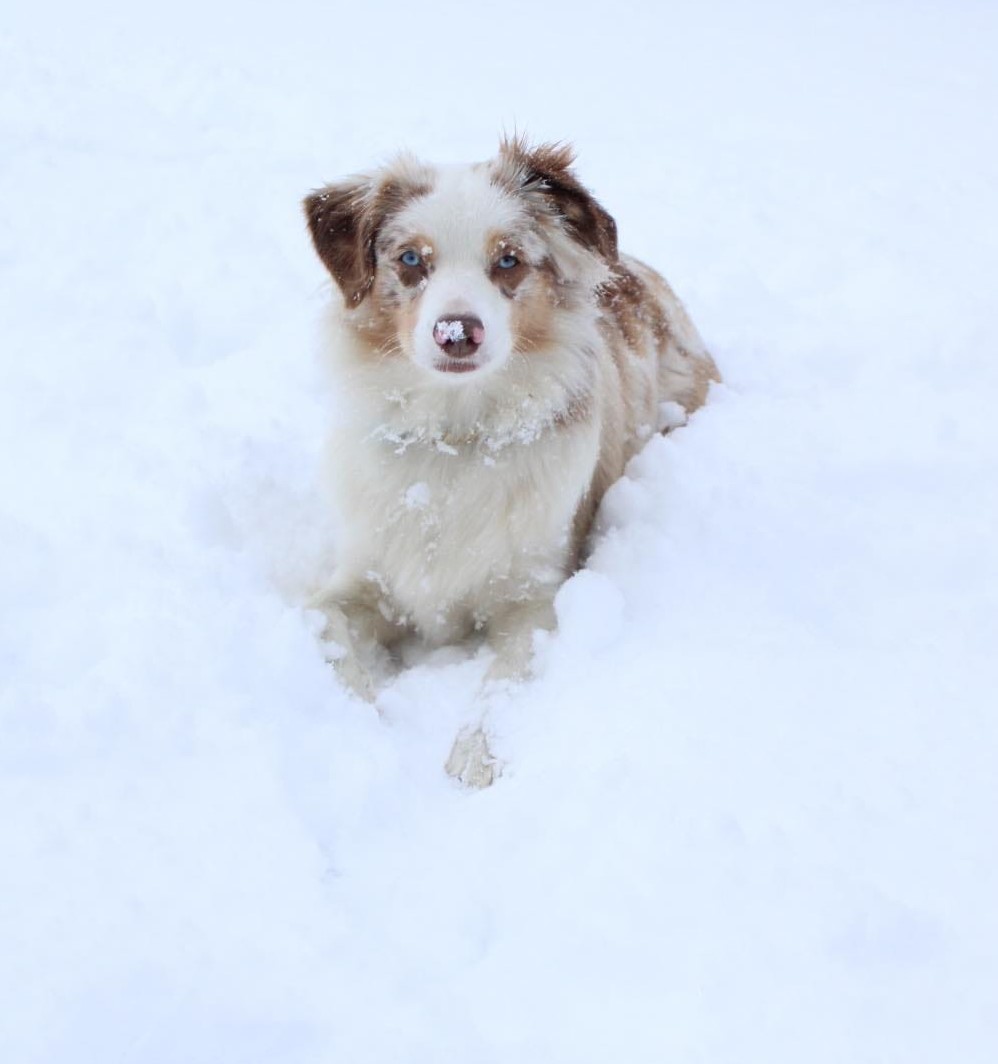At The Hometown Veterinarian, we know that harsh winter weather can pose serious risks to you and your pets. That’s why we’re committed to helping you navigate cold weather conditions with practical tips and compassionate care. Our pets are family, and keeping them safe and healthy during the winter months is a key part of The Hometown Veterinarian Difference. Below, you'll find essential information to help protect your furry friends from cold weather dangers.
Cold Weather Safety Tips for Pets in Marshalltown, Iowa (and Everywhere Else Too)
Iowa winters are no joke, and pets can suffer just as much as humans when temperatures drop. Here are some cold weather safety tips to keep your pets warm, healthy, and safe:
Limit outdoor time: If it’s too cold for you, it’s probably too cold for your pet. Keep outdoor excursions brief and supervise your pet when they’re outside.
Provide shelter: If your pet spends time outdoors, ensure they have a warm, dry shelter that protects them from wind, rain, and snow.
Keep them dry: Wet fur can quickly lead to hypothermia. Dry your pet off after outdoor adventures, paying close attention to their paws and underbelly.
Protecting Your Dog’s and Cat’s Paws from Salt and Ice
Snow, ice, and road salt can cause discomfort and injury to your pet’s paws. Follow these steps to protect their feet:
Use pet-safe de-icers: Traditional salt can burn your pet’s paws and is toxic if ingested. Choose pet-friendly alternatives.
Trim paw fur: Keeping the fur between your pet’s toes trimmed can prevent ice buildup.
Apply paw balm: A protective paw balm or wax can shield your pet’s paws from harsh elements.
Wipe paws after walks: Always wipe your pet’s paws after outdoor walks to remove salt, ice, and debris.
How to Keep Pets Warm During Freezing Temperatures
Just like people, pets need extra layers to stay warm during cold weather. Here are some tips to keep them comfortable:
Dress for the weather: Consider a coat or sweater for dogs with short fur. Look for items that cover the chest and belly for maximum warmth.
Provide cozy bedding: Ensure your pet has a warm, comfortable spot to rest indoors. Use blankets, pet beds, or heated mats for extra coziness.
Keep them indoors: Whenever possible, keep your pets inside during extreme cold snaps.
Recognizing Frostbite and Hypothermia in Pets
Pets can suffer from frostbite and hypothermia in extremely cold conditions. Learn to recognize the signs so you can act quickly:
Frostbite Signs:
-
Pale, hard, or cold extremities (ears, tail, paws)
-
Swelling or blistering in affected areas
-
Pain or sensitivity when touched
Hypothermia Symptoms:
-
Lethargy or weakness
-
Shivering
-
Drop in body temperature
-
Slow, shallow breathing
If your pet shows any of these signs, seek veterinary care immediately. Early intervention can make all the difference.
Winter Emergency Preparedness for Pets in Marshalltown, Iowa
Severe winter weather can strike at any time. Make sure you’re prepared with a winter pet emergency kit.
What to Include in Your Winter Pet Emergency Kit:
-
Pet-safe de-icer
-
Paw balm or wax
-
Blankets or warm bedding
-
Extra food and water
-
Medications and first-aid supplies
-
Reflective gear for nighttime walks
Why Antifreeze is Dangerous for Pets: Prevention Tips
Antifreeze poisoning is a serious risk during winter months. Unfortunately, pets are attracted to its sweet smell and taste. Here’s how to keep your pets safe:
Store antifreeze securely: Keep antifreeze in sealed, pet-proof containers.
Clean spills immediately: Even small amounts can be lethal to pets.
Use pet-safe antifreeze: Some brands offer antifreeze with a bittering agent to deter pets from ingesting it.
Best Winter Gear for Dogs and Cats in Marshalltown
Protect your pets from the cold with the right gear:
Coats and sweaters: Choose items that fit snugly and cover your pet’s chest and belly.
Boots: Protect your dog’s paws from ice, snow, and salt.
Reflective gear: Ensure your pet is visible during early morning or evening walks.
Adjusting Your Pet’s Diet and Hydration During Cold Weather
Cold weather can impact your pet’s dietary needs:
Increase calories: Pets may need more calories to maintain their body heat in cold weather.
Ensure hydration: Cold weather can cause dehydration. Ensure your pet has access to fresh, unfrozen water.
Consult your vet: Our team at The Hometown Veterinarian can help you adjust your pet’s diet for optimal winter health.
How to Safely Exercise Your Pet in Snow and Ice
Pets still need exercise during the winter months, but safety is key:
Short, frequent walks: Opt for shorter walks more often to prevent prolonged exposure.
Choose safe areas: Avoid icy surfaces and deep snowdrifts.
Watch for signs of cold: If your pet is shivering or lifting their paws frequently, it’s time to go inside.
Need Help Protecting Your Pet This Winter?
Your pet’s safety is our top priority at The Hometown Veterinarian. If you have questions about winter pet safety or need a wellness check, don’t hesitate to reach out at (641) 758-3333. We’re here to help you keep your furry friend safe, warm, and healthy all season long.
